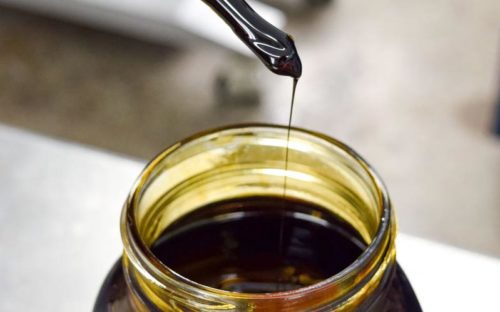THC-O: What Is It? The Whole Story | Voluntate Shop
The abbreviation THC-O, commonly known as THCO Acetate and THC, is the slang acronym for THC-O-Acetate. That many names are given to just one material. It can be perplexing, and that's true.
Thankfully, cannabis culture tends to be more concise than accurate; otherwise, we'd always have to speak or write "tetrahydrocannabinol." THC-O or THC will therefore presumably be more common.
And while we're talking about names, it's crucial to distinguish between THC and THCA (or THCa). Tetrahydrocannabinolic acid, or THCA, is the precursor molecule of THC.
As you can tell from the complete name, acid is represented by the letter "A" in THCO Acetate. In unprocessed cannabis, THCA naturally arises and undergoes decarboxylation to become THC. The letter "A" in THC stands for acetate. The first significant distinction is that.
The ability to solely manufacture THC in a laboratory setting is the second key distinction. You cannot make a batch of THC-O-Acetate in your kitchen with a few tools from the hardware store. It would have terrible effects (that means flaming death, boys and girls).
The two compounds are very distinct creatures, so when comparing THC and THCA, be sure to pay attention to where the "A" appears in the name (and even whether it's upper or lower case).
Cannabinoid
THCO Acetate is a cannabinoid, exactly like THC, CBD, CBG, and CBN, so that should be obvious. Cannabinoids are essentially chemical substances that interact with the cannabinoid receptors in your brain.
They are, in other words, the "stuff" that gets you high, numbs your pain, and lessens your worry.
The problem with THC-O-Acetate is that it is not a cannabinoid that is found in nature (like THC and CBD). To produce THC-O in a lab requires some fairly intense — and volatile — chemistry. Terpenes and flavonoids, among others, are removed during processing, leaving only a powerful THC isolate that lacks both flavor and scent.
THCO Acetate is just a heavy, dark liquid that is more analogous to motor oil than anything else when it is in its natural state (or unnatural state, to be more specific). And at the end of the day, THC-O-Acetate is what chemists refer to as an "analog."
An analog is a substance that resembles another substance structurally but differs from it in one specific way. THC was the original substance in this instance. Thus, THC-O is a THC analog.
What Distinguishes THC And THC-O From Each Other?
Images are the most effective approach to explain the distinction between THC and THCO Acetate. (they really are worth a thousand words).
Aside from the absence of Hs, Cs, and 3s, the upper right corner of the two images differs the most.
There is an OH in the THC molecule in the top image. There is an O and a fresh set of lines in the THC-O-Acetate molecule at the bottom of the image. The acetate molecule (the "A" in THC) is represented by that new set of lines.
That novel molecule is what distinguishes THC from ordinary THC and makes it unique.
Why Is THCO Acetate Unique?
One very essential thing happens when the acetate molecule is added to the base THC molecule: the THC molecule becomes stronger.
Although we know you're eager to learn more about THC-strength, THC-O-Acetate please be patient. Since there is some misunderstanding regarding water solubility, let's start there.
NOT Water Soluble: THC-O
Lipids (fatty oils) are what cannabinoids like THC and CBD are in their natural condition. Thus, they are fat-soluble when used as a food or beverage (meaning they dissolve in oil).
The process by which fats and oils dissolve in your body differs significantly from that of water-soluble nutrients like vitamins and fiber. To put THCO Acetate simply, there is an additional filtration stage before the nutrients enter your bloodstream.
Due to the differences in those procedures, consuming cannabis results in less THC entering your bloodstream and ultimately reaching your brain because of the additional filtration (where all the magic happens).
Water-soluble substances THC-O-Acetate, however, skip that additional filtering step and enter your bloodstream directly. The amount of nutrients that is usable by your body has increased as a result.
THC-O-Phosphate, a cousin of THCO Acetate, is water soluble but takes a while to dissolve due to the chemistry involved. As a result, effects take longer to manifest and are less potent than they would be with a typical THC molecule. Who would want it, anyway?
Does this imply that THC-O-Acetate is soluble in water as well? Regrettably, no. Water does not dissolve THC-O. The molecule undergoes the same filtration procedure in your body as other fat-soluble compounds.
When you take a THC-O product, fewer molecules enter your circulation as a result of those filters.
However, there is some good news about the whole water-soluble/not-water-soluble debate: THC-O molecules are significantly stronger than THC that is typically smoked, dabbed, or consumed.
As a result of the filtering process, fewer THCO Acetate molecules are available to get to your brain, but the few that do will still blow your socks off.

Comments
Post a Comment